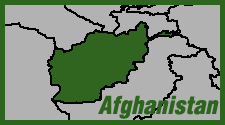 The latest Afghanistan Opium Survey (PDF), released Nov. 13 by the UN Office on Drugs and Crime (UNODC), finds that the country produced record levels of poppy in 2013. Total production reached 5,500 tons—up by nearly 50% over last year's figure of 3,700. Cultivation amounted to 209,000 hectares (516,000 acres)—a 36% increase over last year. The previous record was 193,000 hectares (477,000 acres) in 2007. And prices dropped by 12%—clearly due to boosted production. Eradication efforts fell by 24%, and the seizure rate lagged behind that of other opium-producing countries.
The latest Afghanistan Opium Survey (PDF), released Nov. 13 by the UN Office on Drugs and Crime (UNODC), finds that the country produced record levels of poppy in 2013. Total production reached 5,500 tons—up by nearly 50% over last year's figure of 3,700. Cultivation amounted to 209,000 hectares (516,000 acres)—a 36% increase over last year. The previous record was 193,000 hectares (477,000 acres) in 2007. And prices dropped by 12%—clearly due to boosted production. Eradication efforts fell by 24%, and the seizure rate lagged behind that of other opium-producing countries.
The number of opium-growing provinces rose from 17 to 19. The cultivation heartland is traditionally the south and west, especially Helmand and Kandahar provinces, which are "dominated by insurgency and organized criminal networks." But this year two northern provinces, Faryab and Balkh, lost their poppy-free status. Even at deflated prices, one kilogram of dry opium fetched up to $200—compared to 41 cents for a kilo of wheat.
The jump could be due to the crop recovering from a blight last year that drove prices up—but another reason could be the planned withdrawal of Western troops in 2014, which the report said "led farmers to try to hedge against the country's uncertain political future." With 60,000 US troops left in Afghanistan—down from a peak of 100,000—insurgents have fought hard to reclaim lost ground in opium-growing areas. "The narcotics issue in Afghanistan acts as a virus festering on a low immunity system of governance," said Jean-Luc Lemahieu, the UNODC representative for Afghanistan. "The region and international community share responsibility in this."
Shafeek Seddiq, president of the Afghanistan Justice Organization, sensibly told NBC News: "If farmers are being offered no other financial alternatives, no services, no way out of poverty, they're going to continue to go back to planting poppy every time." Offered Wadir Safi, political science professor at the University of Kabul: "The drug economy plays a direct role in severely destabilizing the region. Poppy crop sales make it increasingly difficult for the Afghan government to establish control in an ever-increasing part of the country and opium continues to make its way to neighboring countries and Europe." (NBC, NPR, The Verge, Nov. 13)
But it is unclear whether the opium crop is making Afghanistan ungovernable or if the instability is leading to the poppy boom. Since overthrowing the Taliban in 2001, the US has spent nearly $7 billion to combat opium—to spectacularly counter-productive results. Since the CIA-backed Mujahedeen insurgency of the 1980s, armed rebels in Afghanistan have turned to the opium trade to fund their guerilla wars. The Taliban, in power, had a draconian policy on opium—which notoriously won them the support of the UNODC. The rebel Northern Alliance meanwhile protected the opium trade to fund their war—and essentially became the new Afghan government after the US invasion. Now we may assume that the Taliban, reduced to an insurgency, are once again exploiting the opium trade themselves, fundamentalist prohibitions notwithstanding.
Not that the government, or loyalist regional warlords, don't also have a hand in the traffic. Opium (and hashish) lucre has certainly become a goad of the war at this point. But if the war fuels the opium trade as much as vice versa, and if the US presence in turn fuels the war (as the Soviet presence did in the '80s), it will be interesting to watch whether production rises further or starts to fall if in fact the US and its NATO partners really pull out next year...
The findings of the Opium Survey will be incorporated into the UNODC's next World Drug Report. Last year's WDR, released in June, found that Afghanistan remained the world's top opium producer. The record-breaking yeild was also predicted in an Afghanistan Opium Risk Assessment released by the UNODC earlier in the year.
Cross-post to High Times







Recent comments
1 day 10 hours ago
1 week 16 hours ago
5 weeks 23 hours ago
8 weeks 6 days ago
12 weeks 6 days ago
13 weeks 4 days ago
23 weeks 4 days ago
27 weeks 5 days ago
28 weeks 5 days ago
28 weeks 5 days ago